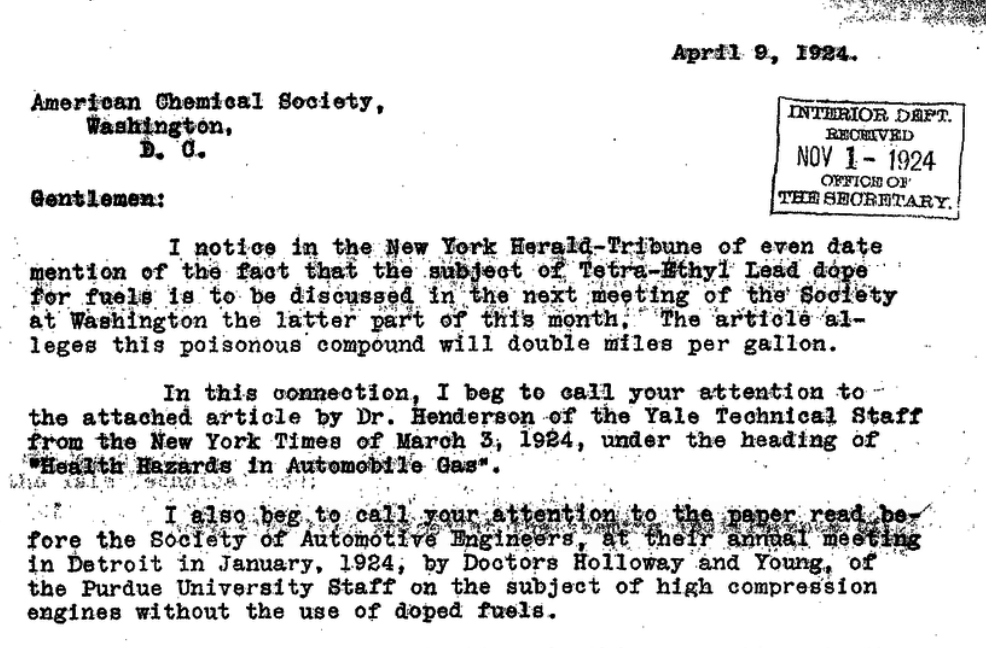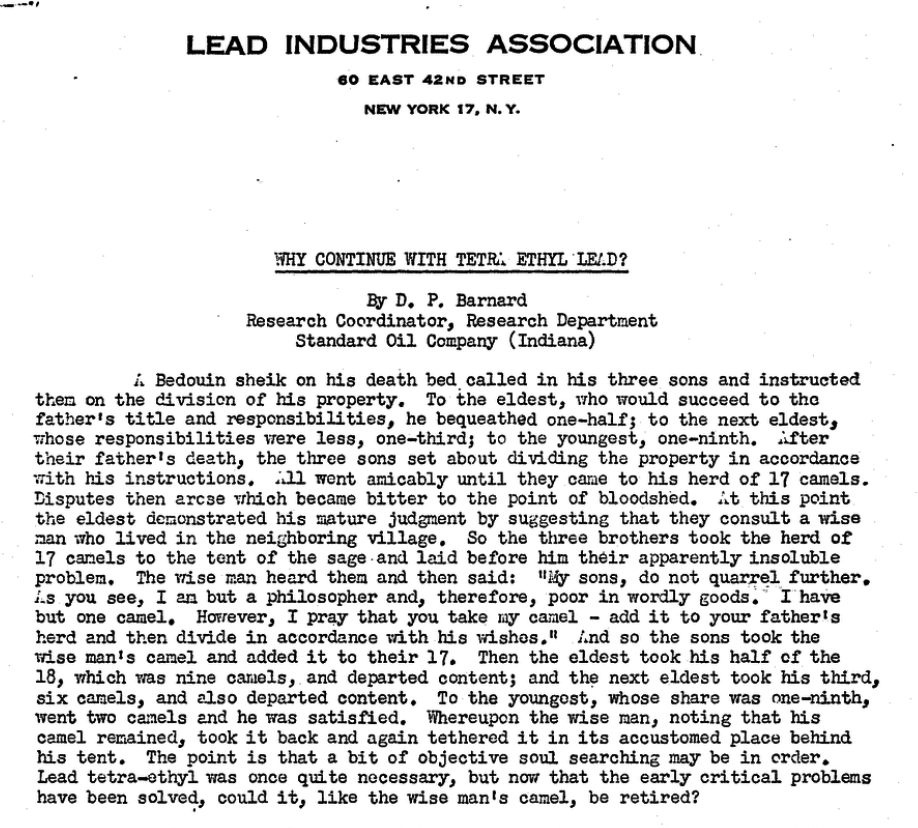Using ToxicDocs in the Classroom: The Tetraethyl Lead Controversy
ToxicDocs isn't just for researchers. This blog post is about its use in a current class, called "Poisoned Worlds: Corporate Behavior and Public Health," right here at Columbia University.
ToxicDocs isn't just for researchers. This blog post is about its use in a current class, called "Poisoned Worlds: Corporate Behavior and Public Health," right here at Columbia University. It's taught by one of our core ToxicDocs team members, David Rosner.
For the past couple weeks, students in the class have been examining documents on tetraethyl lead, which we've separated into a separate collection. They've been analyzing the documents closely, identifying persons of interest that jump out, references to the changing regulatory climate, and discussions about danger and risk, among many other themes.
Most historians agree that the best way to learn how history is actually put together is to examine the raw material used to write it: that is, primary sources. That's what students here are doing.
We'll be posting their work over the next couple weeks. If you're an instructor and are using ToxicDocs in class, let us know so we can share it here!
The first post is by Quenton King, an MPH Candidate in Sociomedical Sciences at the Mailman School of Public Health.
W.P. Deppe and the TEL Controversy
In 1924, W.P. Deppe, an American Chemical Society member, sent a letter to the Society regarding a New York Herald-Tribune article that claimed fuel with TEL would double automobiles' gas mileage. Deppe disagreed with the article, citing a statement from Mr. Horning, Chairman of the Society of Automotive Research Engineers, in which he said TEL will only result in a 25% fuel efficiency gain. Mr. Deppe wanted his disagreement to be on the record and acknowledged at an upcoming American Chemical Society meeting. He felt that the small benefit to gas mileage wouldn't be worth the damage that would be done to humans and the environment, and expressed worry that the false claim could persuade the public, industry, or government to support of TEL additives.
To gain a deeper understanding of this letter, it would be helpful to know more about Mr. Deppe. Did he have some sort of leadership role in the Society? Was he nationally recognized outside of the Society? Did he continue to be vocal against TEL additives?
We know that in 1924 tetrethyl lead were relatively new and continued to grow more commonplace in the years that followed. What was the American Chemical Society's relationship with the auto industry? What was the Society's position on TEL use?
Another letter by Deppe begins to reveal more of the story. As it turns out, Deppe was founder and owner of Deppe Motors Company (here's a picture of a company bond from 1917). In this strongly worded letter to the Department of the Interior, Mr. Deppe expresses his shock and disapproval that the Bureau of Mines has been largely quiet on the issue of TEL in gasoline and the harm posed to public. He references the DuPont factory lead debacle "House of Butterflies." He specifically calls out a "Mr. Midgley." I hadn't come across Midgley until reading this letter, but a quick Google search reveals that he was a key figure in developing and promoting TEL for gasoline use. So it seems that Mr. Deppe was genuinely concerned about TEL in gasoline, which I find a bit curious as he was in charge of an automobile related company.
I found a final document, a presentation at the 1957 Annual Lead Industries meeting entitled "Why Continue with Tetra Ethyl Lead?", while trying to search for more information on the American Chemical Society during the 1920s and their position on TEL. Unfortunately I was unsuccessful, but I still found this presentation interesting. It begins with a strange story where the moral or lesson learned hardly relates to the debate over TEL. The presenter, D.P. Barnard, justifies TEL by praising its success in reducing engine knock. Throughout the presentation he says that the public prioritizes horsepower in cars, but there are several misconceptions about what horsepower really is. Leaded gasoline manufacturers don't just sell TEL gasoline, they sell a certain "perception" of it to Americans. The public values car performance, and TEL allows you to unlock the true potential of your car, so the story goes. It's an interesting tale of consumerism. He concludes that TEL use will continue and that manufacturers need it to remain competitive.
We will be posting more student findings on tetraethyl lead over the next few weeks!


